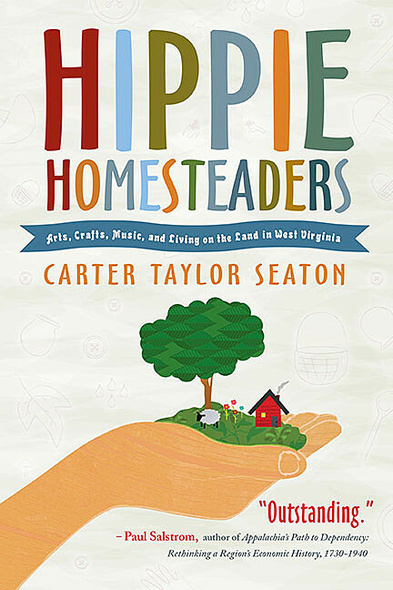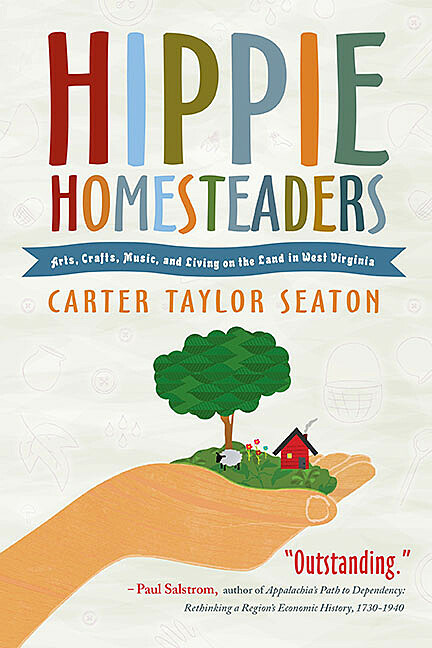Hippie Homesteaders
Arts, Crafts, Music and Living on the Land in West Virginia
It’s the 1960s. The Vietnam War is raging and protests are erupting across the United States. In many quarters, young people are dropping out of society, leaving their urban homes behind in an attempt to find a safe place to live on their own terms, to grow their own food, and to avoid a war they passionately decry. During this time, West Virginia becomes a haven for thousands of these homesteaders—or back-to-the-landers, as they are termed by some. Others call them hippies.
When the going got rough, many left. But a significant number remain to this day. Some were artisans when they arrived, while others adopted a craft that provided them with the cash necessary to survive. Hippie Homesteaders tells the story of this movement from the viewpoint of forty artisans and musicians who came to the state, lived on the land, and created successful careers with their craft. There’s the couple that made baskets coveted by the Smithsonian Institution’s Renwick Gallery. There’s the draft-dodger that fled to Canada and then became a premier furniture maker. There’s the Boston-born VISTA worker who started a quilting cooperative. And, there’s the immigrant Chinese potter who lived on a commune.
Along with these stories, Hippie Homesteaders examines the serendipitous timing of this influx and the community and economic support these crafters received from residents and state agencies in West Virginia. Without these young transplants, it’s possible there would be no Tamarack: The Best of West Virginia, the first statewide collection of fine arts and handcrafts in the nation, and no Mountain Stage, the weekly live musical program broadcast worldwide on National Public Radio since 1983. Forget what you know about West Virginia.
Hippie Homesteaders isn’t about coal or hillbillies or moonshine or poverty. It is the story of why West Virginia was—and still is—a kind of heaven to so many.
Outstanding. This story has come nowhere near being told with such depth and breadth until now.’
Paul Salstrom, author of Appalachia’s Path to Dependency: Rethinking a Region's Economic History, 1730-1940
A distinctive story. Engaging. Fascinating.’
Dona Brown, Professor of History, University of Vermont
'This book was waiting to be written and perhaps only Ms. Seaton could have written it. Her clear, direct prose is, perhaps, the only prose that is appropriate for this story. Her own creative background and her historian's grasp and presentation of the details, moods and unrest of the times take the book far beyond a mere description of arts and crafts, providing a marvelous addition to the understanding of what makes West Virginians the people they really are.Ms. Seaton's writing, like these people, is a treasure.'
Lee Maynard, author of the Crum Trilogy: Crum, Screaming with the Cannibals, and The Scummers and The Pale Light of Sunset.





